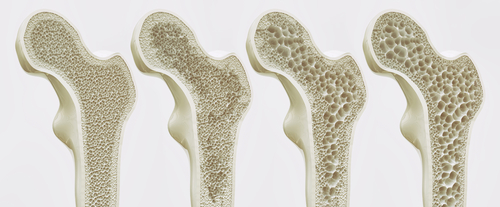
A study published in Aging supports the continued use of antiosteoporosis medications during the COVID-19 pandemic, speculating that some of these agents may even protect patients against the virus.
This cross-sectional study included 2,102 patients (mean age, 66.4 years; 80.5% were women) who were treated at the Rheumatology Service of Hospital del Mar in Barcelona, Spain, for osteoporosis (43.5%), osteoarthritis (63.7%), and fibromyalgia (27.2%). Researchers compared COVID-19 cumulative incidence from March 1, 2020, to May 3, 2020 with population estimates for the same city.
The most common comorbid conditions were hypertension (42.4%), pulmonary disease (15.0%), cardiovascular disease (14.9%), and diabetes (12.6%). Patients in the cohort were taking vitamin D (62%), calcium (23.3%), denosumab (12.6%), and intravenous zoledronate (8.5%). More than half of patients were taking analgesics, and nearly one-third were receiving antidepressants.
A total of 109 patients (5.19%) were diagnosed with COVID-19 during the study period. Patients with osteoporosis had lower COVID-19 incidence rates (2.98%; 95% confidence interval [CI], 1.88-4.08) than the general population, while patients with osteoarthritis (4.58%; 95% CI, 3.46-5.70) and fibromyalgia (4.45%; 95% CI, 2.76-6.14) had slightly higher rates.
Denosumab, zoledronate, and calcium were negatively associated with COVID-19 incidence. Pregabalin and most antidepressants studied were positively associated with COVID-19 incidence, whereas duloxetine presented a negative association. Oral bisphosphonates, vitamin D, thiazide diuretics, antihypertensive drugs, and chronic nonsteroidal anti-inflammatory drugs had no effect on COVID-19 incidence.
“Our results provide novel evidence to support the maintenance of the main antiosteoporosis treatments in COVID-19 patients, which may be of particular relevance to elderly patients affected by the SARS-CoV-2 pandemic,” the researchers concluded.







 © 2025 Mashup Media, LLC, a Formedics Property. All Rights Reserved.
© 2025 Mashup Media, LLC, a Formedics Property. All Rights Reserved.